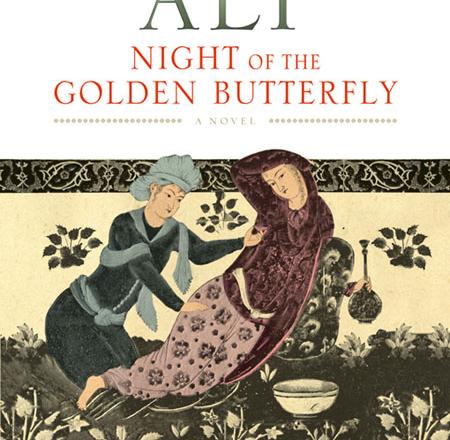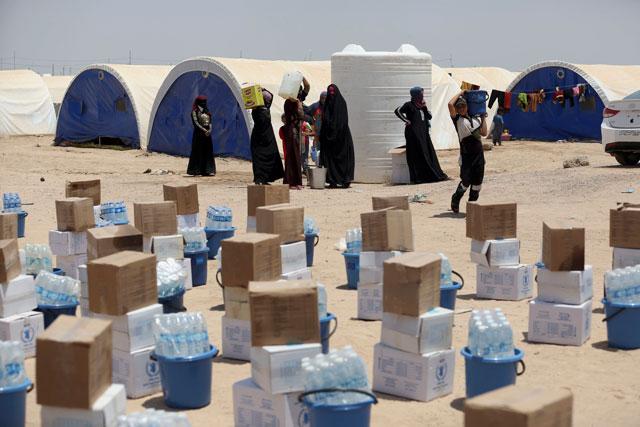You are here
The novel as cultural essay
By Sally Bland - Jun 08,2014 - Last updated at Jun 08,2014

Night of the Golden Butterfly
Tariq Ali
London: Verso, 2010, 275 pp
This is the final book of Tariq Ali’s Islam Quintet, a series of novels situated at important junctures of Muslim history, such as the Arabs’ last days in Spain, and Salahdin’s conquest of Jerusalem. In contrast to the previous four, the fifth volume is contemporary and global, jetting from Lahore to Paris, London, the US and China, to reveal the complex history of various Muslim communities and patterns of migration.
“Night of the Golden Butterfly” starts and ends with Plato, a brilliant, iconoclastic painter who studiously avoids seeking wealth and fame. Traumatised as a child by losing all his family in the violence that accompanied the1947 partition of India, and dumped alone on the Pakistani side, he develops an acute eye for human pretense, pain and injustice. His biting social critique makes him a sort of secular guru to a group of leftist college students in Lahore in the early 60s. One of them is Dara, who narrates the novel and whom one suspects is the author’s alter ego. As the novel opens, Plato contacts Dara, who has been living in London for decades, to demand repayment for a long-ago favour. While Plato had always been secretive about his personal life, he now wants nothing less than for Dara to write a novel based on his life. Dara cannot refuse, but realises that in writing about Plato, “I would, of necessity, have to resuscitate the lives of others, including my own.” (p. 79)
It is this resuscitation that gives the novel its structure as Dara revives memories of his youth and reconnects with those in his circle of old friends from Lahore, who are still alive. While all had shared dreams of revolution to create a better world, they have since had to survive in the world as it evolved quite apart from their expectation. Reconnecting means confronting new interpretations of the past and the changes undergone by old friends. With each new character comes insight into a different experience which together amount to a panorama of Muslim lives past and present, challenging the monolithic picture of Islam today being promoted by most mainstream media.
Particularly poignant is reencountering his old Punjabi friend, Zahid, now married to Jindie, a Punjabi of Chinese descent, with whom Dara was (is?) madly in love. As Dara struggles to reconcile himself to their marriage, Jindie attempts to explain why she didn’t marry him by sharing her diary which traces her family history back to the Hui Muslims in Yunnan, China, whose sultanate was destroyed by the Hans, leading her family, like others, to flee. Tellingly, she makes the parallel to Punjabis’ treatment of other ethnic groups, like the Baluch, Pashtuns and Sindhis. Jindie’s brother, Hanif, or Confucius, as they called him in the old days, had gone to China long ago in search of his Maoist dreams. Reconnecting with him means revisiting the Cultural Revolution and its aftermath. Meanwhile, the marriage of Jindie’s and Zahid’s daughter to a Fatherland general takes the reader into the labyrinth of the military’s corruption, intrigue and partnership with the “war on terror”. Dara also meets new friends of Plato, like Zaynab, whose brothers married her to the Holy Koran in order to disinherit her, a practice not permitted by Islam but used by patriarchal landlords with impunity to hoard their wealth.
Everyone knows that Lahore, birthplace of the author and most of his characters, is in Pakistan, but the book refers only to the Fatherland. While Ali may have used this term to avoid accusations, it has the effect of making his narrative a more universal critique of narrow nationalisms. The narrative is rambling, raucous, irreverent and funny, yet dead serious as Ali satirises hypocrisy, corruption, willful ignorance and injustice in East and West, with his most witty satire targeting the racism inherent in Islamophobia.
This is a well-crafted novel filled with fascinating characters, unconventional behaviour, vivid dialogue, passionate and platonic love affairs and bizarre incidents, but it is more. The subtext is a humanistic cultural and historical essay which revisits the past, decrying imperial rulers and celebrating popular rebellions, while scrutinising the new world order and finding it wanting. Known as a secular leftist, Ali’s interest in Islam is uncovering its hidden history and great contributions to civilisation. At the same time, he is deeply disturbed by the effects of poverty, fanaticism, war and corruption, lamenting the descent of Lahore from a “cosmopolitan city into a monocultural metropolis” and of the Fatherland into a country “where human dignity had become a wreckage”. (pp.32 & 163) Brimming with political, literary and cultural references, playing on words in several languages and getting to the heart of what is needed for human happiness and fulfillment, this is a novel that is both enlightening and enchanting.
Sally Bland
Related Articles
AIN DARA, Lebanon — Braving death threats, Abdallah Haddad fought for years to shut down quarries near his village in Lebanon. The 61-y
AMIRIYAH AL FALLUJAH, Iraq — As Iraqi political and military attention shifts north in the fight against the Daesh terror group, the militar
AMMAN — The Petra Development and Tourism Region Authority (PDTRA), in collaboration with the Japan International Cooperation Agency (JICA),


















